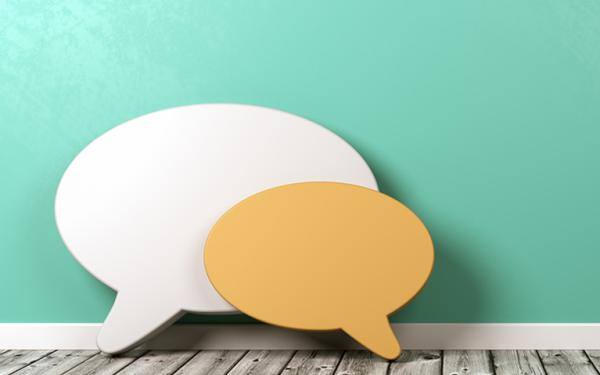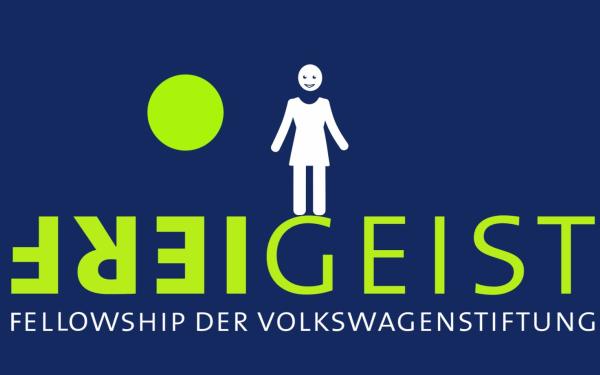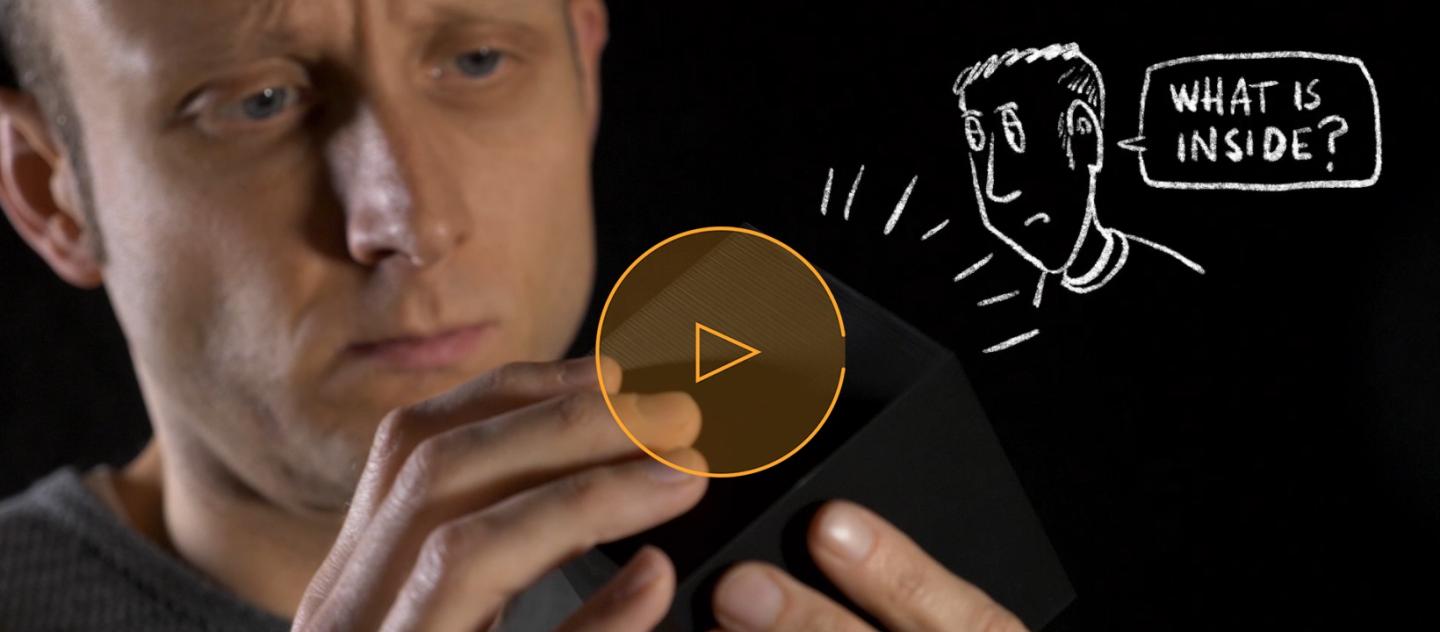
BlackBoxScience - R. Kaufmann
Behind the scenes of research culture: "Black Box Science"
Freigeist Fellow Rainer Kaufmann has the courage to leave the comfort zone – his video project "Black Box Science" gives an uncompromising view of research culture. An interview about the realities of everyday life in research and the origins of the "Black Box" project.
Today’s world of science is often quite opaque – and aims to provide polished results and highlight successful straightforward careers. The physicist Rainer Kaufmann, a 'Freigeist' Fellow at the University of Hamburg, is researching a new microscopy method with his project "Super-Resolution Fluorescence Cryo-Microscopy". It combines the advantages of cryo-immobilization of biological preparations with the increased resolution of so-called super-resolution fluorescence microscopy. With his video series called "Black Box Science" he wants to (self-)critically examine the research culture. His aim: to provide early career scientists with a more realistic insight into what they are letting themselves in for and to encourage the debate on the topic. The communication project is funded in the module "Science Communication and Knowledge Transfer".
Dr. Kaufmann, what prompted you to launch the "Black Box Science" project?
Rainer Kaufmann: I think it is important to give young scientists a realistic insight into scientific culture. It needs to be made clear that science doesn’t always follow straight lines within a set pattern. Researchers are confronted with all sorts of challenges in our research culture: We are measured in figures and have to cope with the resultant pressure to publish, we have to cope with insecure employment contracts or with the negative aspects of competitive research. We need to discuss and tackle these obstacles - a somewhat more self-critical view can help enormously.
For example, I have fond memories of my early doctoral studies, when I had a very different view of science. From the perspective of a young and naive physicist, who didn’t even know what an "impact factor" was, the scientific world was very different from the way I see it today. For many young scientists, this insight into the actual realities of science comes as a shock, since typically it is a highly idealized picture that is communicated to the outside world.
What gave you the idea for the project?
The initial idea for the project arose from a chance discussion with a filmmaker and doctor of philosophy whom I still know from my time in Heidelberg. We met by chance in Berlin shortly after I had received my Freigeist Fellowship and exchanged views on how opaque research culture can be: You start with the rather naive approach of a doctoral student entering scientific research – and advance to being leader of a junior research group who is quite suddenly thrown into the deep end to face the challenges of management, administration, and fundraising.
We do not focus on scientific content, as is typically the case in science communication, but on everything that concerns us around it.
This led to the idea of shedding a little more light onto everyday life, with a focus not on scientific content, as is typically the case in science communication, but on everything that concerns us around it.
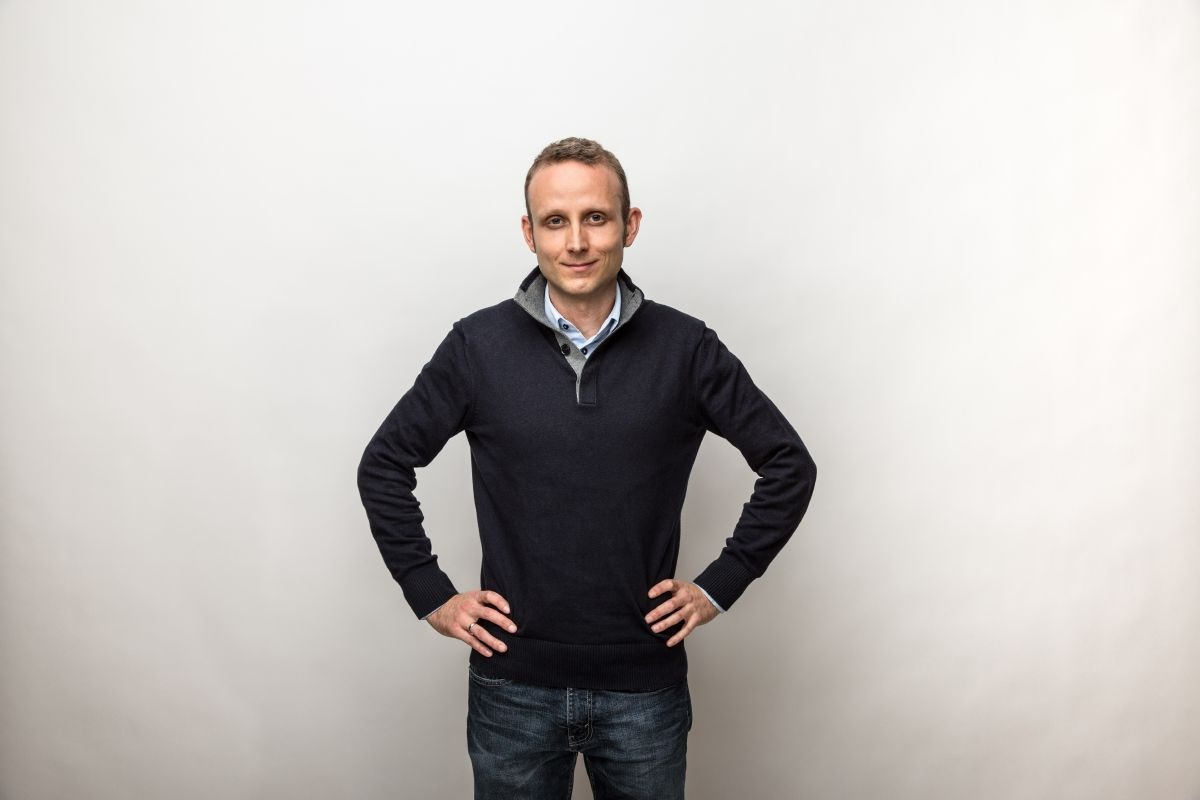
'Freigeist' Fellow Rainer Kaufmann
What has "Black Box Science" got to offer?
The project mainly comprises short videos on selected topics. We started with "Hiring the right people". Further episodes will focus on the typical challenges mentioned above, but also on the dynamics in the research group and the responsibility towards its members. In addition, the blog on our website Black Box Science provides further information and discussion on the respective topics of the video contributions. Here, everyone can use a commentary function to express their opinion and thus participate in the discussion. The video blog aims to get in touch with other researchsers and discuss grievances and, of course, possible solutions.
How did you set about realizing the project?
Producing the video contributions is of crucial importance for the implementation of the project. There are so many little things to consider that all have to fit together in the end – from the lighting during the video shoot, to the editing, which sets the pace in the final video, to animations to enhance the content. Here, of course, I am dependent on external expertise.
Another important part of Black Box Science is our website, which offers the possibility to delve deeper into topics and discuss them on the blog. Finally, it is crucial to be able to make the target group aware of the project. I brought a team of digital designers and digital marketing consultants on board to work on these areas.
It took about 6 months from the approval of the project to release of the first videos. This not only included the purely technical implementation, but also a large part of experimentation and discussion before coming up with the final format, which would not have been possible without the first video material.
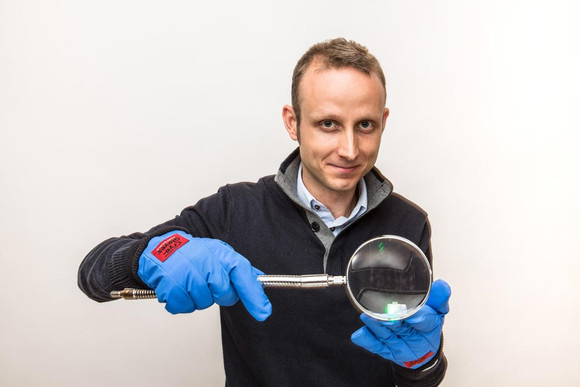
Freigeist-Fellow Dr. Rainer Kaufmann.
Are you solely attempting to shed light on the research culture of your own field or can the insights be transferred to other subject area?
Of course, the research cultures differ between disciplines, but also between different countries and different institutions. Many things certainly apply across the disciplines. Some things differ owing to different structures. As a scientist in biophysics, I can of course only look at scientific culture from a corresponding perspective. But here, the Black Box Science project also acts as platform for discussing general topics in an interdisciplinary way, jointly searching for possible solutions and benefiting from the different cultures.
Is the time spent compatible with your research work?
The additional time required is indeed higher than I had initially estimated. Even with a powerful team to support the communication project, everything that has to do with the content naturally remains with me. This means I have to plan for some extra weekends and night shifts. But I don't think that this additional effort is lost time from the perspective of purely scientific work. My research benefits indirectly by extending my reach and subsequent networking.
What surprised you the most during production?
Many things develop a certain momentum of their own. On the one hand, this can be driven by a planned feedback loop with the target group, which influences the course of events, but on the other hand it can also be driven by unforeseeable happenings. Many good ideas only emerge during the production phase; before that everything is just a relatively abstract plan. And the moment you can see a piece of the finished product and have something concrete to discuss, often new, undreamt-of possibilities open up. The creativity of the other project members plays a significant role here.
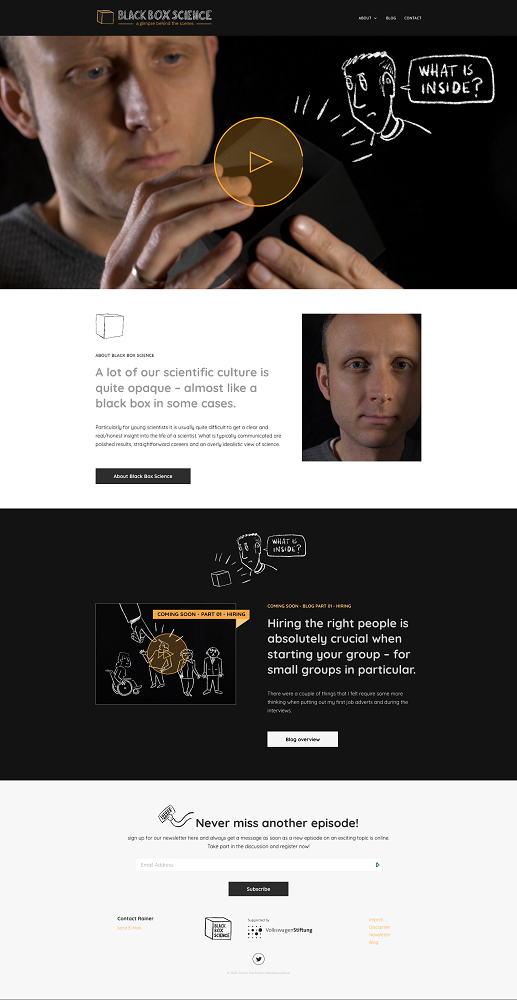
On the blackboxscience.org website, Kaufmann regularly publishes new videos and invites people to take part in discussions.
What is your advice to other researchers who are thinking of starting an outreach project?
Be sure to choose something that you enjoy! This will make it easier to get involved and save time, and you won’t have the feeling that your own research is likely to suffer. The partners with whom you carry out the project are also very important. This is certainly one of the most difficult tasks, because typically as a scientist you don't know anyone in the professional science communication or freelancer scene. I would advise you to look around early on, contact PR people at your own research institution and also get in touch with people in your circle of acquaintances who are active in the business world and familiar with marketing and design, for example. As I said earlier, this part is enormously important when it comes to reaching the target audience.
I would also recommend planning and designing the project in such a way that you force yourself to go a little out of your comfort zone. In this way, implementing the communication project can also contribute to personal development and the strengthening of certain communicative or other social skills. In addition, as David Bowie once said: "Go a little bit out of your depth, and when you don't feel that your feet are quite touching the bottom, you're just about in the right place to do something exciting."

Encourages the dialogue between research and society: the funding scheme "Additional Funding for Science Communication"

